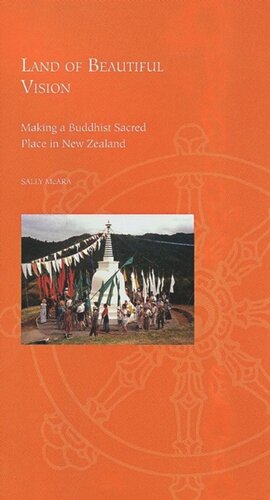

Most ebook files are in PDF format, so you can easily read them using various software such as Foxit Reader or directly on the Google Chrome browser.
Some ebook files are released by publishers in other formats such as .awz, .mobi, .epub, .fb2, etc. You may need to install specific software to read these formats on mobile/PC, such as Calibre.
Please read the tutorial at this link: https://ebookbell.com/faq
We offer FREE conversion to the popular formats you request; however, this may take some time. Therefore, right after payment, please email us, and we will try to provide the service as quickly as possible.
For some exceptional file formats or broken links (if any), please refrain from opening any disputes. Instead, email us first, and we will try to assist within a maximum of 6 hours.
EbookBell Team

4.0
16 reviewsLand of Beautiful Vision is the first book-length ethnography to address the role of material culture in contemporary adaptations of Buddhism and the first to focus on convert Buddhists in New Zealand. Sally McAra takes as her subject a fascinating instance of an ongoing creative process whereby a global religion is made locally meaningful through the construction of a Buddhist sacred place. She uses an in-depth case study of a small religious structure, a stupa, in rural New Zealand to explore larger issues related to the contemporary surge in interest in Buddhism and religious globalization. Her research extends beyond the level of public discourse on Buddhism to investigate narratives of members of the Friends of the Western Buddhist Order (FWBO) about their relationship with the land, analyzing these and the FWBO’s transformative project through a thematic focus on key symbolic landmarks at their site, Sudarshanaloka.
In considering cross-cultural interactions resulting in syncretism or indigenization of alien religions, many anthropological studies concentrate on the unequal power relations between colonizing and colonized peoples. McAra extrapolates from this literature to look at a situation where the underlying power relations are quite different. She focuses on individuals in an organization whose members seek to appropriate knowledge from an "Eastern" tradition to remake their own society—one shaped by its unresolved colonizing past.